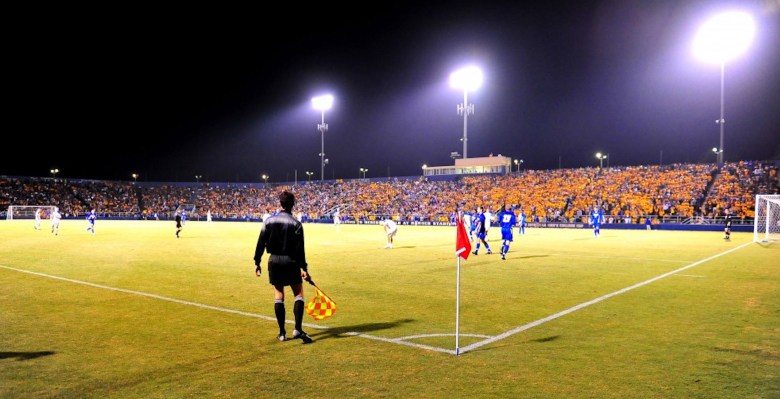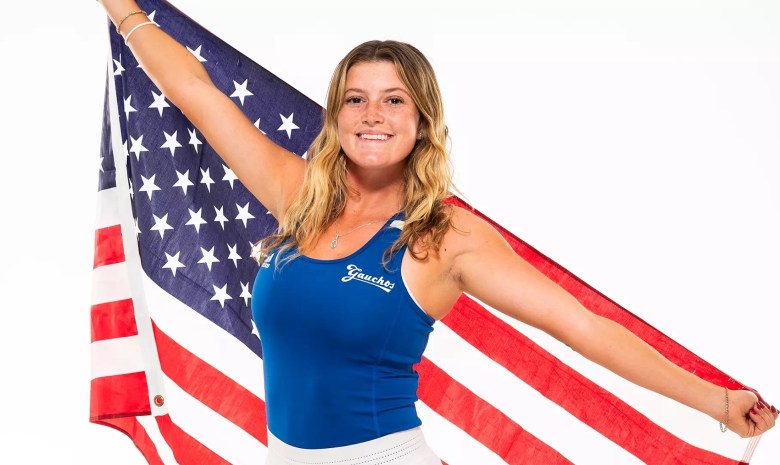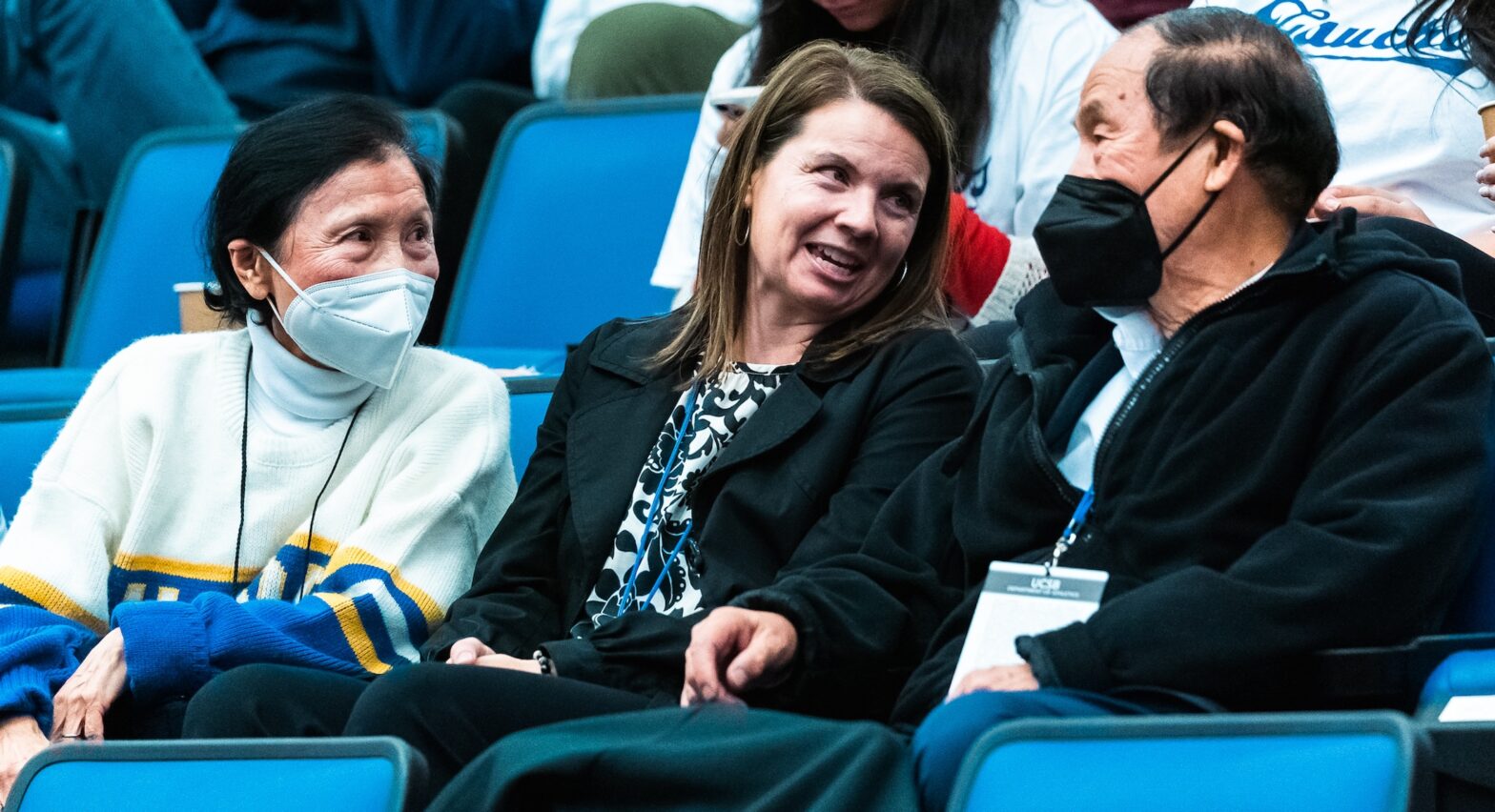John Lennon announced he was leaving the Beatles around the same time the Big West Conference was gathering for its first athletic competition.
The league's first sports season began when Long Beach State visited UC Santa Barbara for a football game on September 20, 1969.
Campus Stadium wasn't yet called Harder Stadium…and the league's original name, Pacific Coast Athletic Association, wouldn't be changed to the Big West for another nine years.
And while neither UCSB nor Long Beach State still plays football, they are the only charter members still in the league.
Lennon would explain all this lyrically a decade later in his song “Beautiful Boy”:
“Life is what happens to you while you are busy making other plans.”
The Big West is now 55 years old, but it looks nothing like the league it envisioned at its first council meetings in October 1968 on the UCSB campus.
It has not sponsored football for 24 years now, and over the last five and a half decades the revolving door school has counted 25 full and associate members.
The most recent dropouts are Hawai'i and UC Davis, both of which will become members of the Mountain West Conference in July 2026.
“It’s not that surprising to me,” UCSB athletics director Kelly Barsky said. “We are in a time where institutions and conferences really need to strategically and consciously make decisions that make sense and are best suited to serving their local institutions.
“They are both a little unique, just like we are in the things we do.
“I think you have to have a really open and growth mindset and understand that there will be some changes.”
Reducing the Pac-12
The changing landscape of the National Collegiate Athletic Association has produced a series of shattering earthquakes.
In particular, they broke the once mighty Pac-12 like a slab of sandstone.
USC, UCLA, Oregon and Washington now find themselves on the other side of the Rocky Mountains in the Big Ten Conference.
Arizona, Arizona State, Colorado and Utah used her move as an opportunity to jump into the Big 12.
That watered down the Pac-12 to a four-pack and led Cal and Stanford to make the desperately absurd leap across the continent and join the Atlantic Coast Conference.
Oregon State and Washington State were left out in the cold by their small media markets.
However, the Pac-2 got the dominoes of conference realignment moving again by poaching Gonzaga from the West Coast Conference and Fresno State, San Diego State, Boise State, Colorado State and Utah State from the Mountain West.
That left the door to the Mountain West open for Hawai'i and UC Davis.
The Big West allows Hawaii to keep its volleyball, beach volleyball, water polo and men's swimming and diving programs in the league.
UC Davis submitted a request to the Big West last week for the same accommodations for its beach volleyball and men's and women's water polo teams.
“I have no personal idea if this is going to happen one way or the other,” Barsky said. “It just needs to be submitted and processed at the conference level.”
UC Davis' football program remains in the Big Sky Conference for now.
The Aggies, who lost to South Dakota in the quarterfinals of the NCAA Football Championship Series on Saturday, would need a significant increase in their budget and some stadium improvements to join the Mountain West in the Football Bowl Series division.

“We had a successful year, but some of these teams have infrastructure and resources that we need to keep up with,” UC Davis athletic director Brock DeLuca said.
“Should we improve our competitiveness, the future of FBS football is wide open for exploration.”
But the Aggies' decision to leave the Big West and move to the Mountain West was undoubtedly due to their desire for such a football upgrade.
Sacramento State — their nearest rival in Big Sky football — motivated them by announcing its own intention to build a major college football stadium.
The Hornets hope the new facility will help them win an invite from the Pac-12, which still needs to add new members.
No SLO going
Cal Poly's failures in Big Sky football and its small San Luis Obispo media market make it less of a flight risk to the Big West.
And the gauchos are happy about that.
“I love when we get into the regionalism of our conference … the regionalism of this fun blue-green rivalry in all of our sports,” Barsky said. “We love having her as a partner.
“I can’t speak for them, but I think the blue-green rivalry will continue and stay healthy.”
Holding the rest of the Great West together is another question. By the time Hawaii and UC Davis exit in 2026-2027, the league's roster will only include nine schools.
The Mountain West may want to tap into the Los Angeles media market by inviting Long Beach State and UC Irvine — two of the Big West's most prominent schools — as non-football members.
And maybe UCSB too?
“I can’t really say when or where we’ll be in touch about things like this,” Barsky said.
“I am ready to say that we will continue to lean on what we have built and continue to expand our strategic plans.”
She likes UCSB's place — athletically and academically — in the current landscape at National Crazy Sports Association.
“I was thinking about it last night while driving,” she said. “Look at Amelia Honer, one of the best tennis players in the country, who just won a gold medal with Team USA (at the Master'U BNP Paribas Championship earlier this month in France).
“There's Manu (Duah) and Alexis (Ledoux) from the soccer team, who went to the MLS Showcase this week, and Tyler Bremner from baseball (a Gaucho pitcher who is projected to be one of the top four players in the Major League Baseball draft in June ). ”

Ajay Mitchell, Barsky added, boosted UCSB's reputation in the basketball world with his outstanding play as an NBA rookie with the Oklahoma City Thunder.
“We also have a lot of student-athletes who want to become pros in something other than their sport,” she said.
“Even in these modern times, we have seen some truly special, historic demonstrations of excellence.”
But the future of the Big West remains the billion-dollar question — what it will cost to compete on a national level in this football-driven age.
After all, the league couldn't repeat the UCSB-Long Beach State football game when it celebrated its golden anniversary five years ago.
On the other hand, booking a Beatles reunion for the halftime show wouldn't have been an option either.
